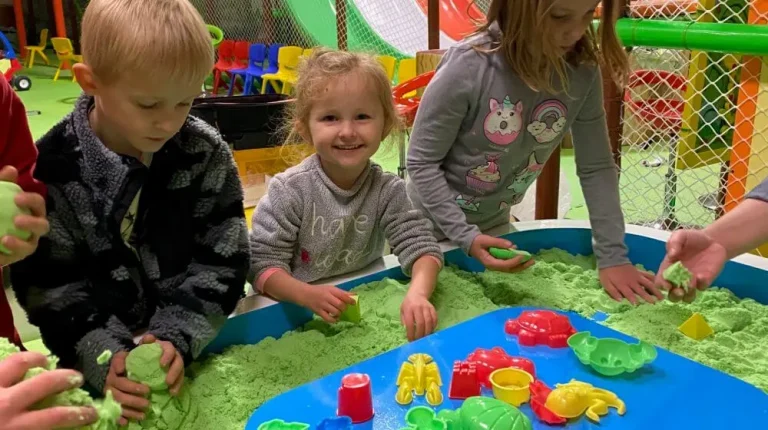Cultivating Success: The Art of Nurturing Leads in Real Estate
In the dynamic world of real estate, generating leads is just the beginning. The true art lies in nurturing these leads, guiding potential clients through their journey until they are ready to make one of the most significant decisions of their lives. This delicate process requires patience, insight, and a deep understanding of the client’s needs and concerns. In this detailed exploration, we dive into effective strategies for nurturing leads in real estate, ensuring that when the time comes, your leads are not just ready but eager to take the next step with you.
Building Relationships through Personalized Communication
The cornerstone of lead nurturing in real estate is personalized communication. Every interaction with a lead is an opportunity to build a relationship and demonstrate your value as a real estate professional. Personalization goes beyond addressing a lead by their name in an email. It involves understanding their specific needs, preferences, and timeline, and tailoring your communication to meet those needs.
Effective communication starts with active listening. Pay close attention to the details shared by your leads about their ideal property, their reasons for buying or selling, and any concerns they may have. Use this information to provide relevant advice, property recommendations, and market insights that resonate with their unique situation. Remember, nurturing a lead is a marathon, not a sprint. Regular, meaningful touchpoints can keep you top of mind, gradually building trust and positioning you as their go-to expert in the real estate market.
Leveraging Content to Educate and Engage
Content is a powerful tool in the lead nurturing process, offering a way to educate and engage your leads without direct sales pressure. A well-crafted content strategy can address the common questions and concerns that leads have at various stages of their real estate journey. From informative blog posts and how-to guides to engaging videos and infographics, the right content can help demystify the buying or selling process, making it less daunting for your leads.
Consider creating a series of emails that guide leads through key aspects of the real estate process, providing valuable insights and tips at each stage. This not only educates your leads but also demonstrates your expertise and commitment to their success. Additionally, interactive content like webinars or virtual Q&A sessions can offer a more personalized touch, allowing leads to connect with you directly and get their questions answered in real time.
Utilizing Technology for Timely Follow-ups
In the fast-paced real estate market, timing is everything. Technology can be a game-changer in ensuring timely and efficient follow-ups with your leads. Customer Relationship Management (CRM) systems allow you to track all interactions with leads, set reminders for follow-ups, and automate certain communications, ensuring no lead falls through the cracks.
Automation can be particularly useful for initial follow-ups after a lead has taken a specific action, such as downloading a guide from your website or attending an open house. A prompt, personalized email acknowledging their action and offering further assistance can make a strong impression. However, it’s crucial to balance automation with a personal touch. Regularly review your lead list, and reach out with personalized messages or phone calls when appropriate, especially as leads move closer to making a decision.
Implementing a Multi-Channel Approach
Relying on a single channel to nurture leads can limit reach. Implementing a multi-channel approach allows you to engage with leads through the platforms they use most, increasing the chances of your message being seen and heard. This approach can include a mix of email, social media, text messaging, and even direct mail, depending on the preferences of your leads.
Social media platforms can be particularly effective for nurturing leads, offering a way to share valuable content, market updates, and personal insights into your real estate journey. Engaging with leads through comments or direct messages can further personalize the experience. Additionally, retargeting ads on social media can keep you in front of leads who have visited your website, subtly reminding them of your services.
Understanding and Addressing Lead Concerns
One of the key aspects of nurturing leads is understanding and addressing their concerns. Real estate transactions can be complex and stressful, and leads often have a range of questions and worries. By proactively addressing these concerns, you can alleviate anxiety and build confidence in your leads.
This involves not only providing information and reassurance but also listening empathetically to their concerns. Sometimes, leads may not be ready to move forward due to various reasons, such as financial uncertainties or personal circumstances. In such cases, offering resources or solutions, such as connecting them with financial advisors or providing market analysis, can demonstrate your commitment to their best interests. Remember, the goal is to support your leads at their pace, building a relationship that extends beyond a single transaction.
Hosting Informative Events and Workshops
Hosting events and workshops is an excellent way to provide value and engage with your leads in a more personal and interactive setting. These events can range from home buying seminars and financing workshops to neighborhood tours and open houses. By providing a platform for leads to learn, ask questions, and interact with you directly, you create a memorable experience that can significantly strengthen your relationship with them.
When planning these events, consider the most common challenges and questions your leads face and tailor your content accordingly. For instance, first-time homebuyers might benefit from a comprehensive workshop that covers the entire buying process, from mortgage pre-approval to closing. Remember to follow up with attendees after the event, offering additional resources or one-on-one consultations to further nurture the relationship.
Developing a Referral Program
Referral programs can be a powerful tool in the lead nurturing process, encouraging satisfied clients to refer their friends and family to your services. A well-structured referral program not only incentivizes past clients to promote your business but also brings in leads that come with a built-in level of trust and credibility.
When designing your referral program, make sure the incentives are appealing and relevant to your clients. This could include gift cards, discounts on future services, or even charitable donations in their name. Regularly communicate the benefits of your referral program to your clients and express genuine appreciation for any referrals received. This keeps the program top of mind and reinforces the value of the relationships you’ve built.
Integrating Targeted Outreach
Skip tracing in real estate can be an innovative approach to identifying and reaching out to potential leads who may not be on the market actively but are prime candidates for buying or selling. This technique involves tracking down property owners who are difficult to locate, providing an opportunity to present a proposition that they may not have considered.
By using skip tracing, you can uncover leads with high potential and tailor your outreach efforts to address their unique situation. Whether it’s offering a solution to a problem property or presenting an investment opportunity, personalized outreach can demonstrate your initiative and resourcefulness, making a strong impression on potential leads.
Fostering Community Engagement Online and Offline
Engaging with your community, both online and offline, can significantly enhance your lead nurturing efforts. Online, this might involve actively participating in local Facebook groups, answering real estate questions on forums, or sharing valuable local market insights on your social media platforms. Offline, you could sponsor local sports teams, participate in community events, or volunteer for local causes.
Community engagement not only increases your visibility but also establishes you as an involved and caring member of the community. This can lead to natural conversations about real estate, with your community ties lending credibility and trust to your professional expertise. As you become a familiar face, both online and in the local community, the relationships you build can turn into a steady stream of nurtured leads.
Conclusion
Nurturing leads in real estate is a nuanced process that requires a blend of personalization, education, timely engagement, and empathy. By building meaningful relationships, leveraging content to inform and engage, utilizing technology for efficient follow-ups, implementing a multi-channel approach, and understanding and addressing concerns, you can guide







